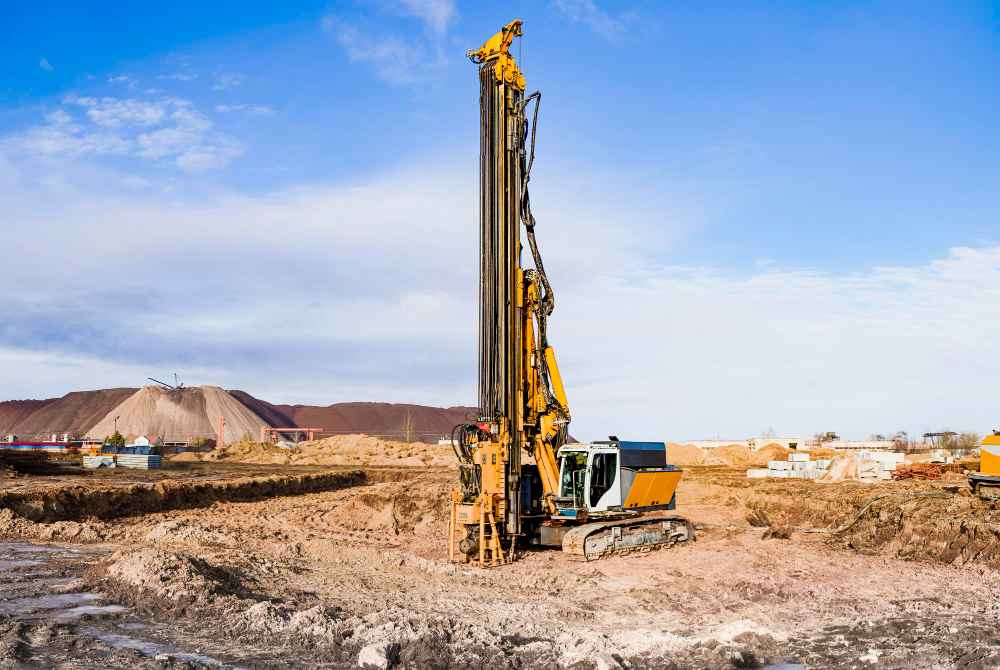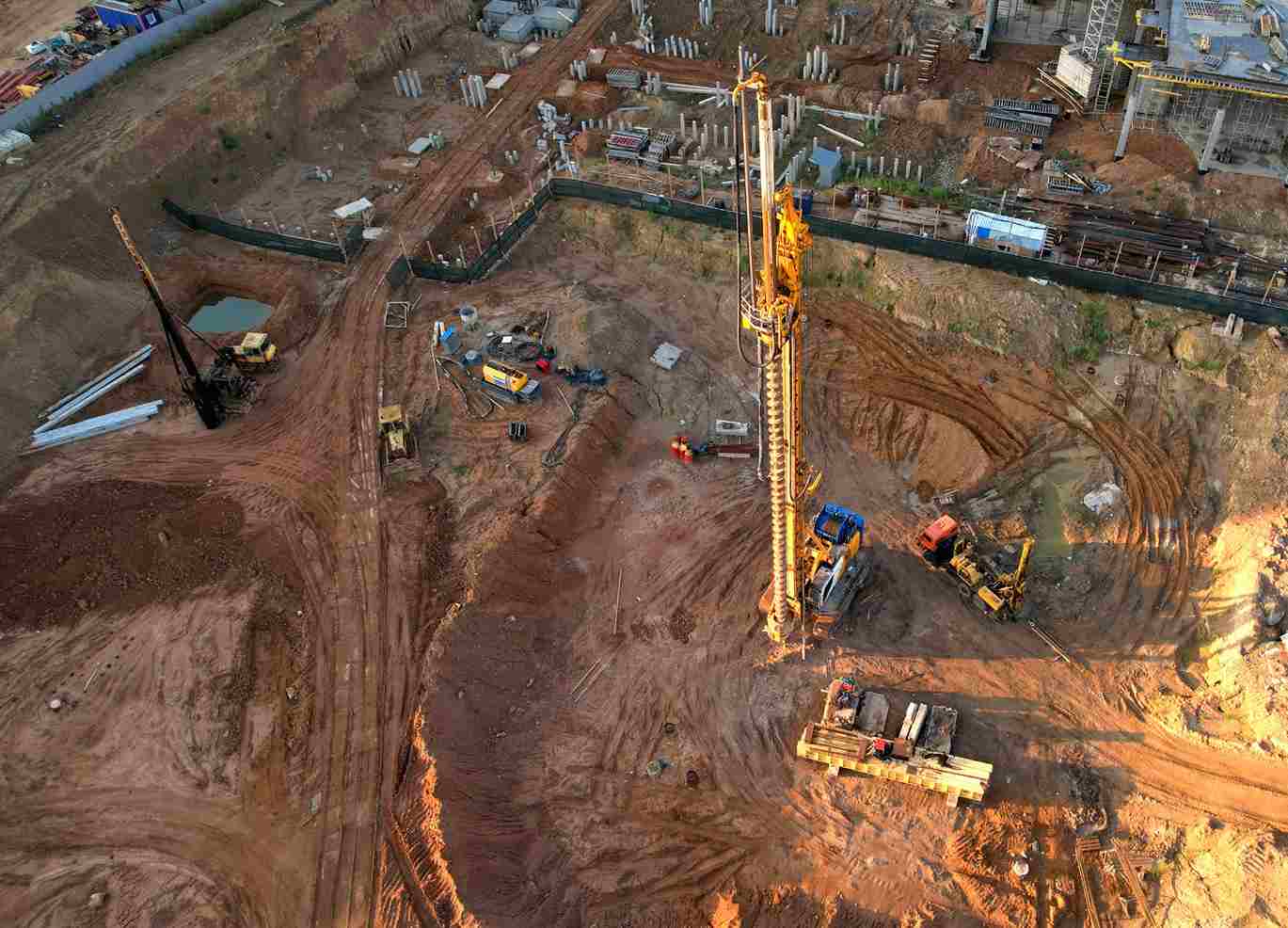When preparing for any construction project, one of the most vital elements to budget for is the foundation. In situations where the ground isn’t strong enough to support a traditional foundation, piling becomes necessary. But how much does piling cost in the UK? And what factors determine that cost?
In this guide, we break down everything you need to know about piling costs, from the types of piling available to the key factors that influence pricing. Whether you’re a homeowner planning an extension or a developer working on a large site, this blog will help you understand what to expect and how to plan your budget effectively.
What Is Piling and Why Is It Needed?
Piling is a construction method used to transfer the weight of a building down to a deeper, more stable layer of soil or rock. It involves inserting long columns (piles) into the ground to support the structure above.
Piling is typically required when:
- The surface soil has poor load-bearing capacity.
- The project involves a large or heavy structure.
- Building on sloped or uneven terrain.
- Constructing near rivers, marshy land, or areas prone to flooding.
Rather than risk structural problems later, piling ensures a safe, long-lasting foundation from the start.
Factors That Affect the Cost of Piling
Piling is not a one-size-fits-all service. The overall cost depends on a range of factors, including:
- Type of Piling: Different methods (e.g., mini piling, bored piles, driven piles) come with varying price points.
- Soil Conditions: Hard ground may require more powerful machinery or different piling techniques.
- Pile Depth and Diameter: Deeper or wider piles mean more materials and longer installation times.
- Site Access: Limited or restricted access (e.g., in tight urban plots) can increase labour and machinery costs.
- Location: Costs may vary across different parts of the UK based on demand, transport, and local rates.
- Design Requirements: More complex or bespoke piling systems can drive up costs.
Each site is unique, which is why a proper survey and design plan are essential before quoting.

Types of Piling and Their Typical Costs
There are several types of piling used in the UK, each suited to specific ground conditions, building requirements, and site constraints. Understanding the differences can help you choose the most suitable and cost-effective method for your project.
Mini Piling
Mini piling is ideal for domestic projects, house extensions, or sites with limited access. It uses small-diameter piles that can be installed with compact rigs, making it perfect for working in back gardens, basements, or tight urban locations. Despite the smaller equipment, mini piles are capable of carrying significant loads when designed properly.
Cost of Mini Piling
The typical cost of mini piling ranges from £120 to £180 per metre. Pricing may vary depending on pile depth, access restrictions, and regional factors.
Driven Piles
Driven piles are pre-formed concrete, steel, or timber piles that are hammered or vibrated into the ground. This method is commonly used in commercial and infrastructure projects where speed and high load-bearing capacity are essential. However, it can be noisy and may not be suitable near existing structures sensitive to vibration.
Cost of Driven Piles
Driven piling typically costs between £150 and £250 per metre. Site noise restrictions and soil resistance may influence final costs.
Bored (Augered) Piles
Bored piling involves drilling into the ground and filling the hole with reinforced concrete. This method is quiet and causes minimal vibration, making it ideal for construction in built-up areas or close to existing buildings. Bored piles are highly customisable in terms of depth and diameter, which allows for precision in challenging soil conditions.
Cost of Bored (Augered) Piles
You can expect to pay £200 to £300 per metre for bored piles. The price can increase for deeper foundations or larger diameters.
Screw Piles
Screw piles consist of steel shafts with helical blades that are screwed into the ground, similar to a giant screw. They are quick to install, generate minimal site disturbance, and are often used for lightweight structures or temporary buildings. Screw piles are also suitable for areas where concrete use needs to be minimised.
Cost of Screw Piles
Screw piling generally costs £100 to £200 per metre. It tends to be more cost-effective for lightweight or small-scale builds.
Typical Piling Costs in the UK
The cost of piling varies based on the method used, ground conditions, and the specifics of the project. Here are average price ranges to expect:
Type of Piling | Typical Cost (per metre) | Suitable For |
Mini Piling | £120 – £180 | House extensions, tight-access sites |
Driven Piles | £150 – £250 | Large residential or commercial builds |
Bored Piles | £200 – £300 | Urban areas, vibration-sensitive zones |
Screw Piles | £100 – £200 | Lightweight or temporary structures |
Note: These prices are general estimates and exclude VAT, site-specific challenges, or additional services. For an exact figure, a detailed site inspection and design review are necessary.

What’s Included in the Piling Cost?
Depending on the contractor, piling quotes may include:
Site Inspection and Preparation: This involves a preliminary visit to assess the condition of the site, identify potential access issues, and determine whether the ground requires clearing, levelling, or temporary reinforcement before piling begins.
Engineering Design and Planning: A structural or geotechnical engineer will evaluate the load requirements and soil conditions to design the correct type and layout of piles. This stage includes calculations, technical drawings, and compliance checks.
Machinery Mobilisation and Setup: Transporting and positioning piling rigs, support equipment, and safety barriers to the site. This also covers fuel, crew logistics, and any necessary road closures or permissions.
Installation of Piles: The actual driving, drilling, boring, or screwing of piles into the ground. This phase includes all materials (steel, concrete, etc.) and the skilled labour needed to complete the job to specification.
Testing (e.g., Integrity or Load Tests): Pile integrity testing ensures there are no defects within the piles, while load testing confirms that each pile can bear the required structural load. Both are vital to ensure safety and compliance.
Documentation and Handover Reports: Final documentation provided to the client, including test results, compliance certificates, as-built records, and maintenance guidance if required.
Always check what’s included in your quote to avoid unexpected expenses later.
Additional Costs to Consider
In some cases, there may be extra costs outside the core piling works:
- Ground investigation (if not already completed)
- Pile caps or reinforced concrete beams
- Site clearance or excavation
- Access solutions (e.g., temporary roads, crane mats)
- Engineering consultancy or structural calculations
Being aware of these can help you build a more accurate project budget.
How to Get an Accurate Piling Quote
To get a reliable quote tailored to your site, provide the following:
- Architectural or structural drawings
- Details about site access or restrictions
- Ground investigation reports (if available)
- Estimated load or building type
- Preferred start and completion dates
Most reputable piling companies will offer a site visit to assess these details before finalising a quote.
Why Work with a Professional Piling Contractor?
Working with a certified piling contractor gives you peace of mind that:
- All work complies with UK building regulations.
- The correct piling method is selected for your ground conditions.
- Specialist machinery is used efficiently and safely.
- You avoid delays, safety risks, and future foundation issues.
A good contractor will also provide insurance, warranties, and proper documentation.
Conclusion
Understanding piling costs is a key part of planning a successful construction project. While prices vary depending on many factors, knowing what affects the cost helps you make better decisions and avoid surprises.
If you’re planning a home extension, a new build, or a commercial development and suspect piling may be required, speak to our expert team today. We offer site surveys, piling design, and professional installation services tailored to your project.
Request a free consultation or quote – let’s build with confidence from the ground up.
Frequently Asked Questions !
How do I know if I need piling?
If the soil on your site is weak or you’re building near trees, slopes, or water, piling is often necessary. A soil test or site survey can confirm this.
Can piling be used for home extensions?
Yes, especially when the extension is close to a neighbouring property or on soft ground. Mini piling is commonly used for this purpose.
How long does piling take?
Some types (like driven piles) can be noisy. Quieter options, such as bored or mini piles, are often chosen for urban or residential settings.
Is piling noisy or disruptive?
Some types (like driven piles) can be noisy. Quieter options, such as bored or mini piles, are often chosen for urban or residential settings.
Can I get a fixed price?
Most contractors offer fixed quotes once a full site survey and ground investigation are completed.


